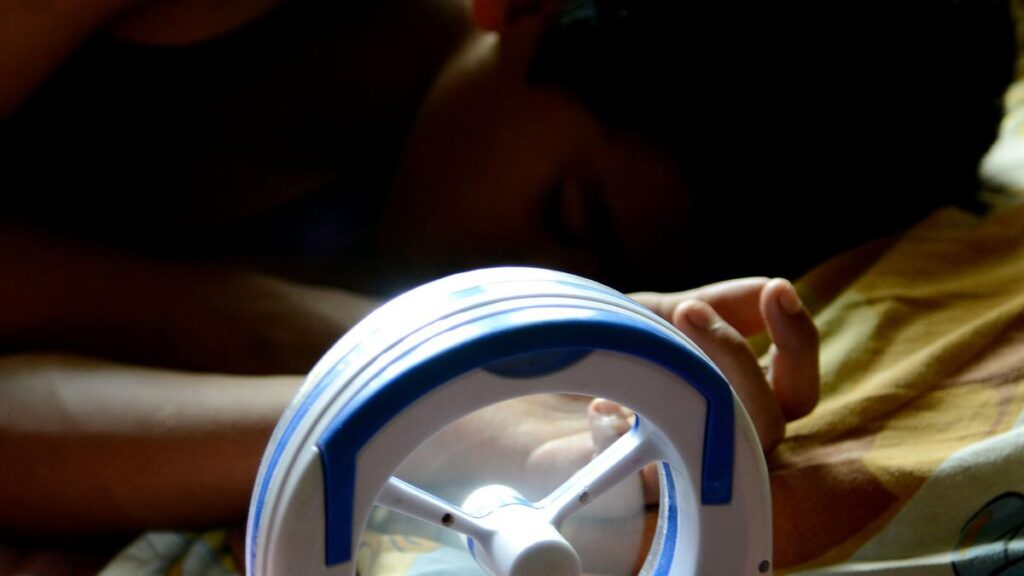
To sleep better in hot environments, it’s recommended to take specific measures such as taking a cool shower before bed, reducing stimulants like coffee, limiting alcohol, avoiding hot tubs after workouts, and taking short naps (30-40 minutes) before 2 pm to mitigate sleep deficits | Image used for representational purpose only
| Photo Credit: VEDHAN M
Cool showers and less coffee or alcohol: sleep quality is being harmed by hotter temperatures caused by climate change, and scientists say we need to learn how to adapt.
The human brain is very sensitive to heat, with higher temperatures raising the body’s central thermostat and activating stress systems. Scientists are increasingly exploring mechanisms that can help the body adapt to rising temperatures affecting our sleep and leading to health complications.
Climate change and its impact on sleep
“Rising temperatures induced by climate change and urbanisation pose a planetary threat to human sleep, and therefore health, performance, and wellbeing,” according to a 2024 review of scientific literature published in the journal Sleep Medicine.
Humans lost an average of 44 hours of sleep a year during the first two decades of the 21st century compared to earlier periods, according to a 2022 study published in the journal One Earth, which linked the data to rising temperatures.
The intensification of global warming could lead to an annual loss of 50 to 58 hours of sleep per person by 2099, according to research led by Kelton Minor, from the University of Copenhagen, based on data gathered from more than 47,000 individuals in 68 countries.
“Interventional studies and field experiments are now urgently needed to foster adaptation and safeguard the essential restorative role of sleep in a hotter world,” Minor and other authors of the paper said. Neurons regulating temperature and sleep in the brain are highly interconnected, and lowering the body’s internal thermostat is key to improving sleep quality. Adapting to heat comes at a cost to the body, according to Fabien Sauvet, a researcher at Paris Cite University.
“We sweat more and faster, for example, but it requires additional hydration. And it has limits, so during heatwaves, the most important thing is to adapt our behaviour,” such as activities, schedules and clothing, Sauvet said.
But humans could “tolerate higher temperatures than commonly thought”, he added, pointing to several studies showing that good sleep quality can be achieved with a room temperature of up to 28 degrees Celsius (82.4 degrees Fahrenheit).
Challenging “the false belief that the bedroom must be at 18-20C”, he said that sleeping in light clothing such as a t-shirt and shorts, and with a simple sheet as well as good ventilation, could help dealing with a few more degrees. “If we always sleep with air conditioning, we will never acclimatise,” he said.
Fight ‘sleep enemies’
Armelle Rancillac, a neuroscientist at the Centre for Interdisciplinary Research in Biology, said anything beyond 28C “becomes much more complicated”. An excessive lack of sleep is known to disrupt the body’s recovery.
In the short term, this can lead to drowsiness, fatigue and a higher risk of accidents at the workplace or on the road. In the long run, it can create a harmful sleep “debt”, impacting our metabolism and increasing the risk of weight gain, diabetes, cardiovascular diseases and even neurodegenerative diseases like Alzheimer’s, Rancillac said.
A sleep deficit can also reduce stress resistance and have a negative impact on mental health. To sleep better in a hotter environment, Rancillac stressed that there is a need to “eliminate or at least pay attention to sleep enemies”.
Before bedtime, it is recommended to take a cool shower — but not an icy one — reduce stimulants like coffee, and limit alcohol, which facilitates falling asleep but slightly raises the internal body temperature. Avoid hot tubs after a workout, opting instead for outdoor temperatures or a cold bath, said Sauvet.
Napping during the hottest hours of the day have also been proven to mitigate the impacts of a sleep deficit. Short naps — “30 to 40 minutes, and before 2:00 pm” — are ideal, so as not to interfere with a good night’s sleep, according to the researcher.
Published – May 13, 2025 12:57 pm IST

